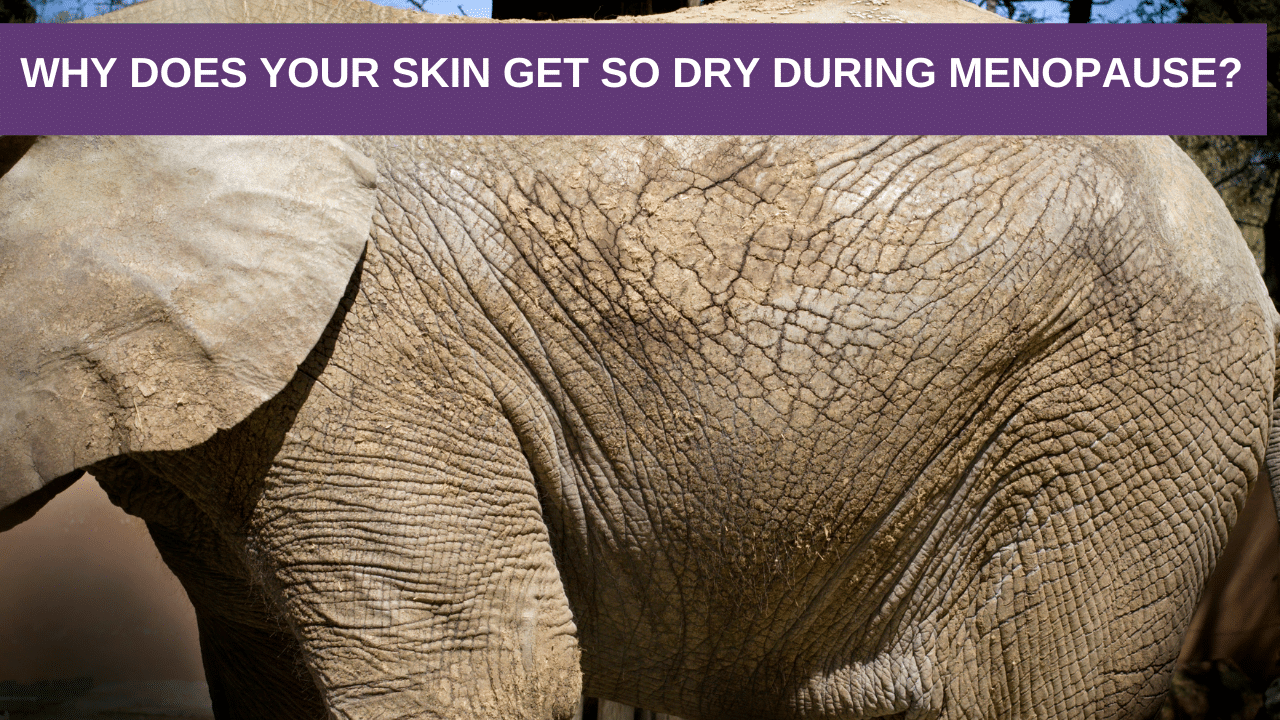Dry skin during menopause is a common symptom and can start early in the perimenopausal phase. Over 36% of women over the age of 40 notice dry skin.
What causes dry skin during menopause?
Your skin becomes dry for a couple of different reasons. Number one, low estrogen levels can cause your cells to become dehydrated. Estrogen affects all the linings of your body, including your skin. Secondly, when estrogen levels are lower, your skin produces a lot less collagen, which is a protein that helps keep your tissues together. The skin cells no longer create the nice thick lush stacks that protect you from the drying effects of heat, cold, wind, and water. Lack of adequate estrogen is the main reason for dry skin in menopause.
Can HRT help?
Hormone replacement therapy can be actually very helpful. But once you’re postmenopausal, it can be difficult to get enough systemic hormones on board to improve dry skin. Yet, HRT is definitely the best way to rejuvenate your skin. While not as effective on their own, topical therapies can be helpful if you’re already using systemic estrogen therapy, and by systemic, I prefer to use transdermal or sublingual, not oral. Systemic oral estrogen can increase your risk of blood clots. Always when using estrogen, I recommend you use progesterone, as it helps to diminish the growth factor effect of estrogen for those cells that are outgrowing their welcome, such as tumor cells. Progesterone also enhances estrogen receptors, so that your skin responds to systemic estrogen faster.
What alternative therapies help dry skin in menopause?
Of the topical therapies, hyaluronic acid has been shown to help hydrate your skin. In addition, hydrating your body from the inside out by drinking enough water is important to help moisturize your skin. Every day, you need at least a 1/2 ounce of water per pound of your weight. Also, limit the amount of time that your skin is exposed to water. Hot water especially tends to dehydrate your tissues. After bathing, be sure to moisturize your skin.
Because your ovaries aren’t coming back after menopause, you’re dependent on adequate adrenal function to make some endogenous hormones. Adrenal DHEA can be converted into testosterone, and then into estrogen. Women with fairly good adrenal function will have much less dryness of their skin.
I have found that my menopausal patients who support their hypothalamus with Genesis Gold® have better adrenal function. As well as a lot less dryness and crepiness of their skin. Their skin looks and feels a lot healthier than those who do not support their hypothalamus. Plus, by supporting their hypothalamus with Genesis Gold®, they’re able to use a lot less hormone replacement therapy to keep their skin healthy.
If you have any questions regarding menopausal dry skin, please join us in our Hormone Support Group, which you can when you sign up for my free Hormone Reboot Training below.



0 Comments